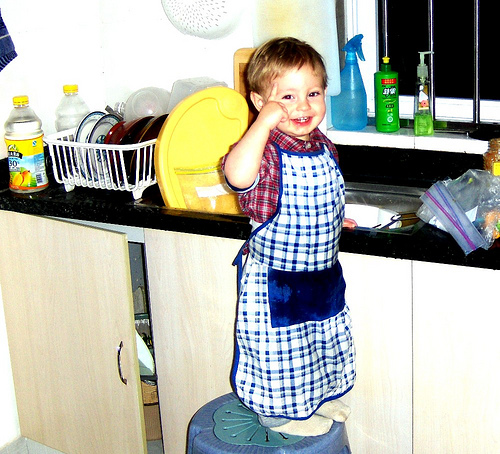When parents speak of “discipline” they often focus on meting out consequences for undesirable behaviors. I like to think in terms of what goes in to developing discipline as a personal quality.
It need not be complex. When parents assign simple daily chores, such setting the dinner table, they provide an opportunity for their children have certain helpful experiences. Whether setting the table, feeding the dog or folding the laundry, developing the habit of completing a regular household chore can contribute quite a bit to a child’s growth and personal development.
- Doing a ‘real’ job helps build self esteem by allowing a child to be a vital, contributing member of the family. Moving from make-believe cooking to ‘the real deal’ can be a mile marker on the road to being a grown-up
- Children start to learn that their actions matter and experience autonomy through the successful completion of a household chore. There’s no denying a mowed lawn or a made bed!
- Most household jobs require a level of focus — especially when the person doing that work does not have a great deal of experience.
- Contributing to the family through completing one (or more) household jobs can teach a person how to complete an assignment and what good work habits feel like. It’s an early taste of job satisfaction.
- Acquiring a new skill takes work, practice and repetition. And we get to learn that “practice makes progress.”
Who knew the chore chart could be such a powerful and important tool in helping to develop the habit of personal discipline?








